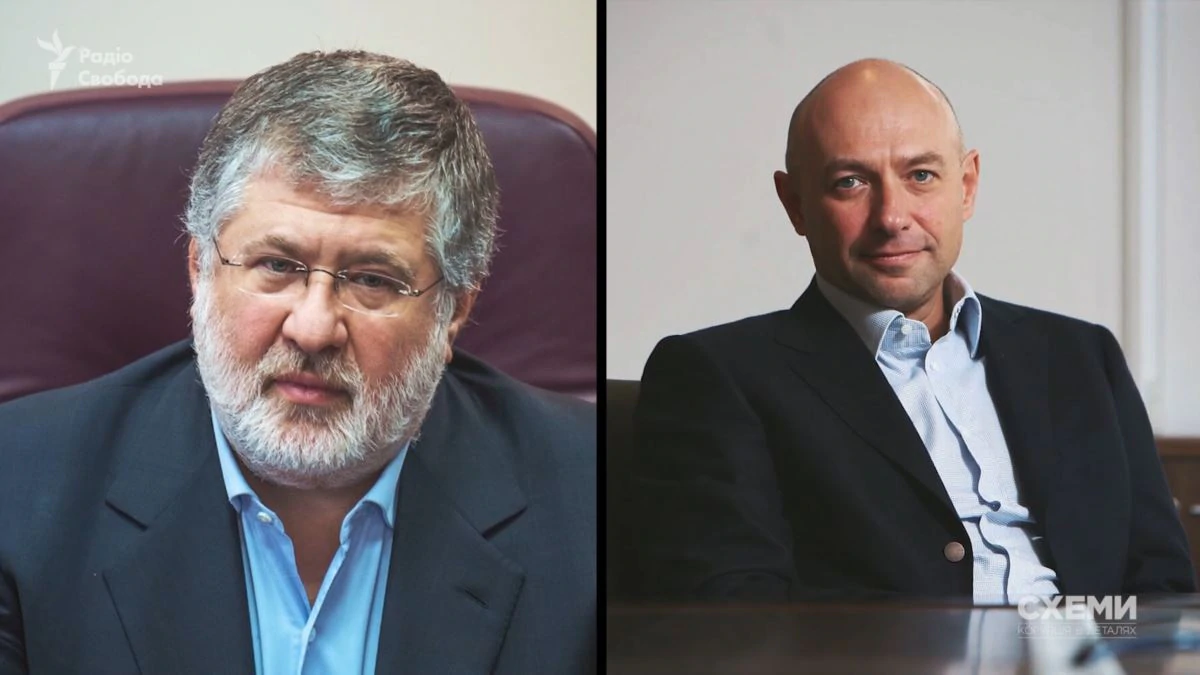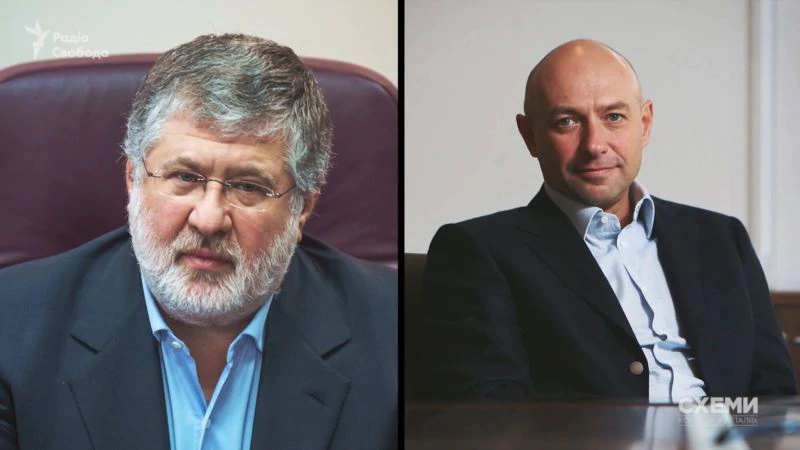
WASHINGTON — Two Ukrainian tycoons under investigation by the FBI for money laundering are suing the United States for attempting to seize their Texas commercial building worth $23 million, saying the government’s actions violate the sovereignty of their home country.
Optima Ventures, a U.S. real-estate holding company controlled by billionaires Ihor Kolomoyskiy and Hennadiy Boholyubov, informed a Florida court on February 5 that it will file for arbitration against the United States in the World Bank’s International Center for Settlement of Investment Disputes (ICSID).
The U.S. Justice Department last year moved to seize three of Optima Venture’s commercial buildings, including in Texas, Kentucky, and Ohio, accusing Kolomoyskiy and Boholyubov of purchasing them with money embezzled from Kyiv-based PrivatBank and later laundered by U.S. shell companies.
The billionaires deny the allegations, saying they have not been charged with any crime in Ukraine. Furthermore, they say some of the PrivatBank loans the U.S. claims were used to buy the Texas buildings have been performing in accordance with borrowing agreements.
“The United States is attempting to regulate the propriety of conduct occurring in Ukraine — the management of a Ukrainian bank in the territory of Ukraine — and has expropriated Ukrainian investors’ investment in the [Texas commercial building] based on the United States’ own interpretation and application of Ukrainian criminal law to Ukrainian conduct,” their complaint filed to ICSiD stated.
They further claimed that “the United States is effectively seeking to substitute itself for the Ukrainian Prosecutor’s Office.”
It is unclear if the tycoons will seek arbitration for the other two buildings the U.S. government is seeking to expropriate. Lawyers for Optima Ventures did not return a call for comment.
Backing Zelenskiy
Kolomoyskiy is one of the most powerful tycoons in Ukraine with assets ranging from oil and gas to metals and media. His television stations backed the candidacy of President Volodymyr Zelenskiy during the 2019 campaign and he is reported to have close ties to his administration.
Ukrainian media also say he has outsized influence over the nation’s courts. Ukraine’s justice system is notorious for corruption and Western officials have said courts are often beholden to powerful political and business leaders.
The National Bank of Ukraine accused the two tycoons in 2016 of using their PrivatBank, then one of the nation’s largest lenders, as a personal piggy bank to distribute themselves loans. Ukraine later nationalized the bank and pumped in $5.5 billon to stave off its collapse.
Parroting the Ukrainian central bank, the United States accuses the Ukrainian magnates of laundering the loans from PrivatBank through Delaware shell companies with the help of two American associates, Mordechai Korf and Uriel Laber, who oversee their U.S. assets from Miami and own a minority stake in Optima.
William Kirtley, a Geneva-based lawyer specializing in investment arbitration at Aceris Law, told RFE/RL that the Optima Ventures ICSID case is a “fairly big deal” as arbitrations against the United States are rare.
The overwhelming majority of ICSID arbitration cases involve emerging market nations, such as Ukraine, where the rule of law is weak.
Of the more than 800 cases registered by ICSID over the decades, the United States has been a party in only 5 cases, or 0.6 percent, according to the ICSID. Eastern European and Central Asian is the largest region by cases, accounting for just over a quarter of all cases, according to ICSID.
ICSID was established in the 1960s to settle disputes arising between an investor — be it an individual or a corporation — and a foreign government.
However, ICSID arbitration is essentially off-limits to most individuals except the very wealthy due to the high cost of arbitration, Kirtley said.
The average cost of arbitration for a claimant is $6 million, according to a 2017 study by Allen & Overy.
ICSID arbitral tribunals rule on a limited number of issues, including expropriations, and seek to determine if public international law has been violated.
A tribunal may consider rulings by a domestic court when making their decision, but it is not binding, Kirtley said. Thus, an arbitral tribunal can rule that an expropriation was illegal regardless of what a domestic court determined, he said.
Even if a tribunal determines an expropriation was legal, it may still award compensation to a foreign investor, Kirtley said.
However, tribunals generally do not award compensation to a foreign investor if a domestic court expropriates an asset due to a crime, he said.
“It is very hard for a foreign investor to win a case when they have unclean hands,” he said. “If what [Kolomoyskiy] is doing is illegal under American laws, then the United States stands a very low chance of ever having a negative reward rendered against it.”
The Department of Justice said it does not believe its actions violate the U.S.-Ukraine Bilateral Investment Treaty, according to the February 5 filing by Optima Ventures.
The United States signed the bilateral treaty with Ukraine that is the basis of Optima Venture’s lawsuit in the 1990s.
ICSID arbitration is not the only step Kolomoyskiy and Boholyubov are taking to protect their wealth in the United States.
In December 2020, their U.S. metals holding, Georgian American Alloys (GAA), filed a lawsuit against its U.S. insurance company for not accepting a claim arising from PrivatBank’s case against the Ukrainian billionaires and their two American associates.
PrivatBank is suing the tycoons, Korf, and Laber in a Delaware court for hundreds of millions of dollars, claiming they defrauded the bank and used the money to buy U.S. assets, including a GAA subsidiary.
GAA’s insurance policy from AXIS included coverage of a “wrongful act” committed by the company, its subsidiaries or its directors, according to the lawsuit. Korf and Laber are among the holding’s directors.
The tycoons and their American associates claim that the PrivatBank lawsuit — which they describe as representing “various errors and omissions with respect to the issuance of corporate loans” — should be covered under the policy.
AXIS did not immediately respond to an RFE/RL request for comment.
PrintRadio Free | Radio Free (2021-02-10T12:15:18+00:00) Ukraine Tycoons Sue U.S., Call Asset Seizure 'Misguided' Foreign Interference. Retrieved from https://www.radiofree.org/2021/02/10/ukraine-tycoons-sue-u-s-call-asset-seizure-misguided-foreign-interference/
Please log in to upload a file.
There are no updates yet.
Click the Upload button above to add an update.
